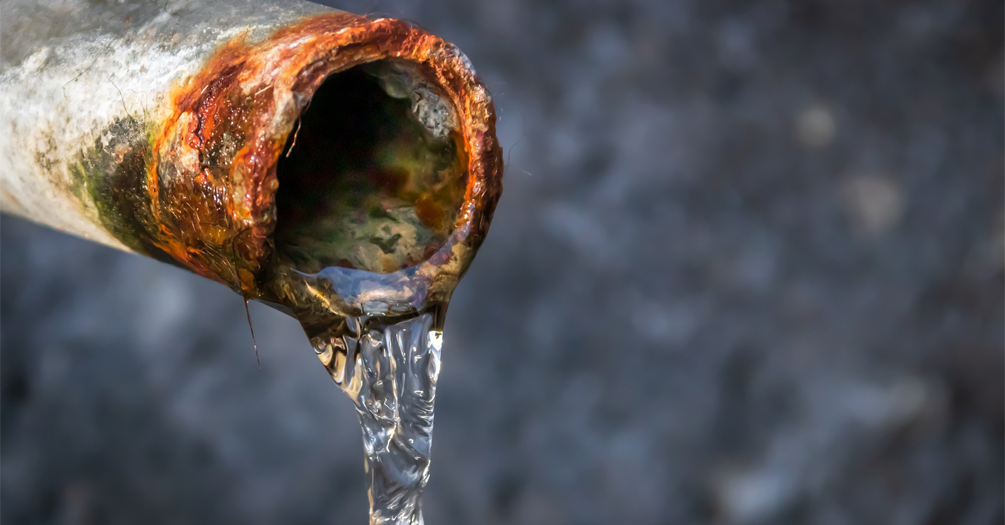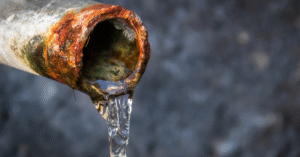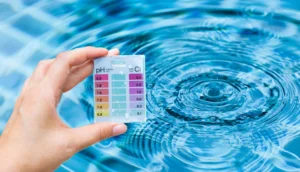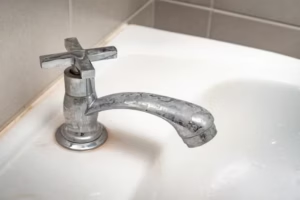Want to save with Paschal? Don’t miss our current offers and specials

Want to save with Paschal? Don’t miss our current offers and specials
Return to Paschal Resource & Education Hub

Reviewed by Paschal’s licensed plumbing professionals based on field experience across Arkansas, Oklahoma, Missouri, and Texas.
Most of us assume that the water coming out of our faucet is safe. But even clear, clean-tasting water can contain harmful contaminants that affect your health, home, and plumbing.
This guide breaks down the most common contaminants found in residential water, the potential impact on your health and home, and how to identify when it’s time to take action. Whether you’re noticing strange tastes, spotting buildup, or just curious about what’s in your water — you’re not alone in asking the right questions.

Lead typically enters drinking water through corroded pipes, solder, and fixtures. Even small amounts are toxic, especially for children and pregnant women. Long-term exposure can lead to developmental delays, kidney damage, and high blood pressure.
⚠️ Important: Lead has no taste, color, or odor — only water testing can detect it.

Many municipalities use chlorine to disinfect water; chlorine helps eliminate bacteria. However, elevated levels can cause skin and eye irritation, dry out your hair, and result in an unpleasant taste or smell. Over time, it can also contribute to harmful chemical byproducts.
PFAS are synthetic compounds used in non-stick cookware, packaging, and industrial applications. These “forever chemicals” don’t break down naturally and are linked to cancer, hormone disruption, and immune system issues.

While not hazardous to health, hard water causes scale buildup in pipes and appliances, reducing their efficiency and lifespan. It also leaves spots on dishes, dulls laundry, and can dry out your skin and hair.
Bacteria, viruses, and parasites may enter water supplies—especially in private wells or after flooding. These organisms can cause gastrointestinal illnesses, posing greater risk to those with weakened immune systems.
You may not see or taste the problem, but over time, poor water quality can cause:
Simply put, what’s in your water touches almost every aspect of your home and health.
The good news: You’re not powerless. The first step is understanding what’s in your water through a comprehensive water quality test conducted by licensed professionals.
At Paschal Air, Plumbing & Electric, we help homeowners improve their water quality with professional, permanent solutions—not temporary fixes like pitchers or bottled water.
Our plumbing team conducts certified water tests to detect contaminants like lead, chlorine, PFAS, bacteria, and mineral content. Results help us determine exactly what’s in your water—and how to treat it.
We install high-quality, whole-home filtration systems that treat every drop of water entering your home. Depending on your water needs, we may recommend:
These systems are designed to remove harmful substances like lead, chlorine, and PFAS, and improve taste, smell, and clarity.
For homes with hard water, we offer water softener systems that remove excess calcium and magnesium. This helps reduce scale buildup, protect plumbing and appliances, and improve the feel of water on skin and hair.
We offer scheduled maintenance plans to keep your system performing at its best. Our licensed professionals are trained to ensure long-term safety and performance.
We work with trusted manufacturers to ensure every system we install meets rigorous standards for performance, reliability, and local water conditions.
If you’ve ever wondered what’s actually in your water, you’re not alone—and you’re asking the right questions. While not every home faces a serious water quality problem, knowing what you’re dealing with gives you the power to protect your home and family with confidence.
Your water should be as clean, safe, and reliable as the rest of your home.
📩 Schedule a Water Quality Test or reach out to our team to learn more about water filtration solutions that fit your home and your budget.
Look for signs like discoloration, odor, strange taste, or buildup on fixtures. However, many contaminants are invisible—regular testing is the only way to know for sure.
PFAS (per- and polyfluoroalkyl substances) are man-made chemicals linked to serious health issues. They’re persistent, meaning they accumulate in the body and the environment.
While bottled water is regulated, it is not always safer. The best way to ensure safe drinking water is through testing and, if needed, professional filtration systems tailored to your home.